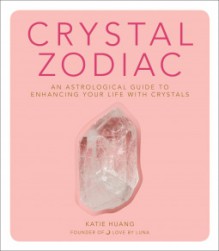
Professor Chandra Follows His Bliss, by Rajeev Balasubramanyam
Professor Chandra is viewed as a master economist, but near 70, he is again passed over for the Nobel Prize. Disappointment fills him, but he hides it as well as he can and attempts to deal with what he perceives as his failure, in a good natured manner. Actually, he is insults some of his students in the process. Therefore, he is offered the opportunity to take a sabbatical to gather his thoughts. Although he initially refuses, he soon changes his mind. Fate plays a part in his plans. He is hit by a cyclist and winds up in the hospital with some serious health issues. He decides it is time to search for some contentment. Once he thought he was happily married, but his wife left him for another man. He has not been as involved with his children as he would like to be since the divorce. He is no longer even in touch with one of his children, a daughter he fought with often. She refuses to contact him and won’t allow anyone to tell him where she is. He misses her. His son Sunil (Sunny), is successful, but lives in India running a business school with a focus on how business should be done. He rarely sees him. He realizes he is lonely. He decides to travel to California, where his ex-wife, Jean, lives with her new husband, Steve, and their youngest daughter, Jasmine. He is hoping to try and reconnect with his family. While there, his ex-wife’s husband challenges him to go to Esalen, a place he believes will help Chandra to gain personal awareness and fulfillment. It will make him happier. This experience opens a new chapter in his life.
Chandra, whom his ex-wife calls Charles, embarks on a journey towards self discovery. He is a man with a type A personality. His behavior and manner reflect his own upbringing, his father’s influence on him and also the influence of his country of origin, India. He is restrained regarding a show of emotion, and he is formal in his dress and demeanor. As he begins to meditate and grow more introspective, he begins to understand more about his own responsibility for the things that have happened in his life, for his children’s reactions to him and his wife’s possible reasons for leaving him, for his colleague’s and student’s treatment of him as well as his behavior toward them. As his ideas and actions slowly evolve, it is as if he “comes of age”. His change affects his interaction with others and they also change, growing more receptive to him as he becomes freer and more open. Old injuries and grudges gradually become less important as they are revealed, accepted, ironed out and even resolved. As Chandra searches for meaning in his life, he also provides meaning in the lives of those he touches.
He has enormous expectations of himself and his children and they often feel unable to fulfill his wishes. Each of his children is struggling to discover their own identity, unencumbered by his. His wife has found a new identity with her new husband. He begins to show more understanding of the plight of others and not only to dwell on himself and his own desires.
The book cleverly touches on racism, politics, religion, culture, morality, economics, world affairs, child rearing, fidelity, divorce, drugs, feminism, and more. As these subjects are introduced, they are treated with humor, a light wit or serious exploration. The book beautifully examines relationships with family, friends, strangers, and anyone else one might come in contact with, with all their flaws and in all their incarnations. Acceptance of what life offered was key, introspection was vital, self-control was primary. Chandra was a man who had almost too much self-control. It made him hard to reach, and it made him self-important, and perhaps, even selfish. He wanted to control others, to make his children in his own image. He showed disappointment rather than compassion, restraint rather than affection. He emphasized success at all costs and sometimes those on whom he imposed his control could not satisfy his dreams. They needed to find their own, and they needed to separate from him to do this. As the book develops, the characters develop and grow. The power of spirituality and deep thought brings enormous change to all of them.
I received this book from LibraryThing Early Reviewers.

 Log in with Facebook
Log in with Facebook 














